
The different specialty coffee regions and their unique flavors
Share
Specialty coffee refers to high-quality, hand-picked coffee beans that are grown in specific regions around the world. These beans are carefully selected and processed to ensure that they have unique and distinguishable flavors. In this blog, we will explore some of the most popular specialty coffee regions and the unique flavors that they offer.
1. Ethiopia
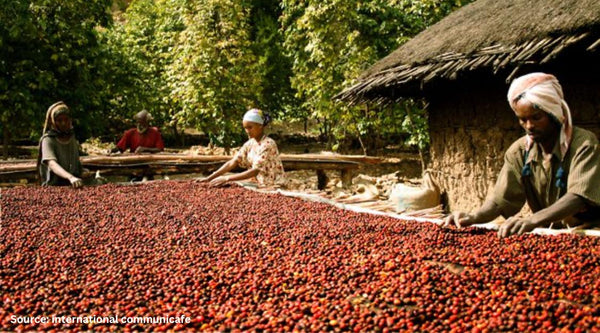
According to some legends, coffee grown around the world can be traced back centuries to ancient coffee forests on the Ethiopian plateau. Ethiopia is known for its unique and complex flavors. Ethiopian coffee is characterized by its fruity and floral notes, with a hint of spice.
Ethiopian coffee is considered by many to be some of the finest and most unique in the world. With a rich history dating back over a thousand years, the country is widely regarded as the home to a vast array of coffee varieties, many of which are native to the country.
Coffee is a central part of Ethiopian culture and is grown in the country's many high-altitude regions, which provide the ideal growing conditions for coffee plants. The unique terroir and climate of these regions imparts a distinctive character and flavor profile to the coffee beans.
Ethiopian coffee is typically processed using traditional methods that have been passed down from generation to generation. This includes washing and sun-drying the coffee cherries to preserve the flavor and character of the beans. The coffee is then sorted and graded based on size, shape, and quality, with the best beans being set aside for export.
Ethiopian coffee is sold under several different names, each of which corresponds to a specific coffee-growing region or cooperative. Some of the most famous and highly sought-after varieties include Yirgacheffe, Harrar, Sidamo, and Limu.
These coffees are often sold as single-origin or estate coffees and are prized by coffee connoisseurs for their unique flavor profiles and high quality.
2. Colombia

Colombian specialty coffee is renowned for its rich, smooth and well-balanced flavor profile. The country is one of the largest coffee producers in the world, with a long history of coffee cultivation dating back to the 18th century.
Colombian coffee is grown in the country's diverse regions, each of which imparts a unique character and flavor to the beans.
The Colombian coffee industry is renowned for its commitment to quality and consistency, with strict standards and grading systems in place to ensure that only the finest beans make it to market.
Colombian coffee is typically grown using sustainable and eco-friendly farming methods, with many producers focused on preserving the natural environment and improving the lives of their workers.
One of the hallmarks of Colombian coffee is its smooth and well-balanced flavor, with notes of chocolate, nuts, and caramel often noted by coffee drinkers.
The coffee is also known for its mild acidity and medium body, making it a popular choice for those who prefer a smooth and easy-drinking coffee.
Colombian coffee is sold under several different names, with the most famous and highly sought-after varieties including Supremo, Excelso, and Milds.
3. Kenya
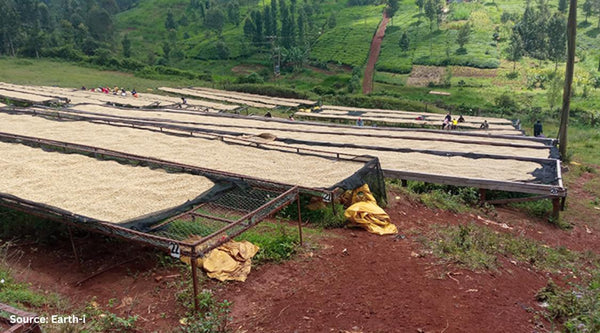
Kenyan specialty coffee is known for its bright acidity and strong fruity flavors. The beans grown in the Central and Western regions are particularly sought-after for their complex fruity and floral notes, while those grown in the Eastern region have a unique wine-like taste.
Coffee was first introduced to Kenya in the late 19th century, and the country has since become a major coffee producer, with coffee grown in high-altitude regions that provide the ideal growing conditions for coffee plants.
Kenyan coffee is known for its bright, acidic, and fruity flavor profile, with notes of lemon, bergamot, and blackcurrant often noted by coffee drinkers.
The Kenyan coffee industry is renowned for its commitment to quality and sustainability, with strict grading systems in place to ensure that only the finest beans make it to market.
The country is also home to several cooperatives and small-scale farmers who are dedicated to preserving traditional growing methods and improving the lives of their workers.
One of the hallmarks of Kenyan coffee is its bright and acidic flavor, which makes it a popular choice for those who prefer a bold and fruity coffee. The coffee is also known for its high-quality beans, which are carefully sorted and graded based on size, shape, and quality.
Kenyan coffee is sold under several different names, with the most famous and highly sought-after varieties including SL-28, SL-34, and Ruiru 11.
4. Guatemala
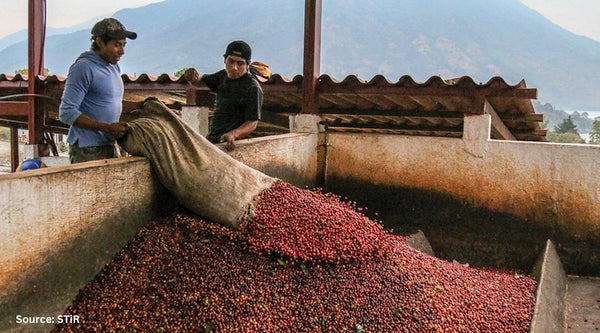
Guatemala is known for its rich and bold flavors. The beans grown in the Antigua region are particularly sought-after for their chocolatey and nutty notes, while those grown in the Huehuetenango region have a unique fruity and floral flavor.
Coffee was first introduced to Guatemala in the late 18th century, and the country has since become a major coffee producer, with coffee grown in high-altitude regions that provide the ideal growing conditions for coffee plants.
Guatemalan coffee is known for its rich, chocolatey, and nutty flavor profile, with notes of caramel, cinnamon, and dark fruit often noted by coffee drinkers.
One of the hallmarks of Guatemalan coffee is its rich, chocolatey, and nutty flavor, which makes it a popular choice for those who prefer a smooth and full-bodied coffee.
The coffee is also known for its high-quality beans, which are carefully sorted and graded based on size, shape, and quality.
Guatemalan coffee is sold under several different names, with the most famous and highly sought-after varieties including Antigua, Atitlan, and Huehuetenango.
5. Yemen
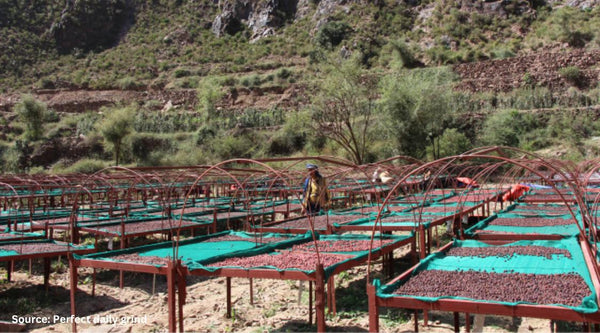
Yemen coffee is known for its unique earthy and spicy flavors. The beans grown in the Haraz region are particularly sought-after for their earthy and spicy notes, while those grown in the Matari region have a unique floral and fruity flavor.
Yemen is one of the world's oldest coffee producing countries, with a coffee-growing history that dates back over 1,000 years. The country's unique geography and climate, which includes high altitudes, volcanic soil, and dry conditions, all contribute to the development of the distinct flavor of Yemen coffee.
Yemen specialty coffee is characterized by its strong, bold flavor and its full body. It has notes of spice, dark chocolate, and a hint of fruitiness.
The coffee beans are usually sun-dried, which gives them a distinct earthy flavor that sets them apart from other types of coffee.
Yemen specialty coffee is typically brewed using traditional methods, such as boiling the grounds with spices like cardamom or adding the coffee to boiling water in a pot called a jebena.
Despite its long history of coffee production, Yemen's coffee industry has faced many challenges in recent years. The country has been in conflict for several years, which has impacted the production and export of Yemen coffee.
Additionally, the country's infrastructure and transportation systems have been damaged, making it difficult for coffee producers to get their beans to market.
Despite these challenges, Yemen specialty coffee remains highly sought after by coffee aficionados and specialty coffee shops around the world.
It’s considered a rare and exotic coffee, and its unique flavor profile has made it a popular choice for coffee lovers who are looking for something new and different.
6. Jamaica
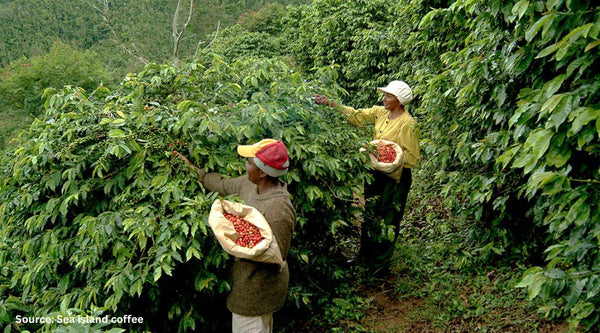
Jamaica specialty coffee is known for its unique floral and fruity flavours. The beans grown in the Blue Mountains region are particularly sought-after for their bright and citrusy notes, while those grown in the High Mountain region have a unique nutty and chocolatey flavor.
Jamaica is one of the places in the world where coffee is grown at high elevations, which contributes to the development of its distinctive flavor.
Jamaican coffee is characterized by its bright and fruity flavor, with notes of lemon and other citrus fruits. The coffee is also known for its clean, smooth finish, with a mild acidity and a medium to light body.
It’s typically brewed using traditional methods, such as drip coffee or pour over, and is often served black to showcase its natural flavor.
Jamaican specialty coffee is grown in the Blue Mountains of Jamaica, which are part of the eastern end of the island. The area is characterized by its high elevation, cool temperatures, and rich soil, which provide the perfect growing conditions for coffee.
The coffee plants are grown using traditional methods and are carefully tended to ensure the highest quality beans.
Despite its high quality, Jamaican coffee has faced challenges in recent years due to a variety of factors, including disease, environmental issues, and competition from cheaper, lower-quality coffee.
However, Jamaican coffee producers have been working to maintain and improve the quality of their coffee, and Jamaican specialty coffee remains highly sought after by coffee aficionados and specialty coffee shops around the world.
7. Costa Rica
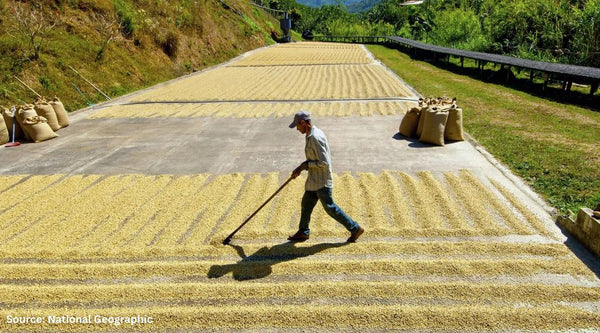
Costa Rican specialty coffee is known for its smooth and balanced flavors, with notes of chocolate and nuts. The beans grown in the Tarrazu region are particularly sought-after for their chocolatey and nutty taste, while those grown in the Tres Rios region have a unique fruity and floral flavor.
Costa Rica is one of the leading coffee-producing countries in the world, and its specialty coffee is highly regarded by coffee aficionados and specialty coffee shops around the world.
Costa Rican specialty coffee is characterized by its bright, clean flavor and its medium to light body. It has notes of citrus and other fruit flavors, as well as a mild acidity and a smooth finish.
The coffee is typically grown in the Central Valley region of Costa Rica, which is characterized by its high elevations, volcanic soil, and favorable climate.
These conditions provide the perfect growing environment for coffee and contribute to the development of its distinctive flavor.
Costa Rican coffee is grown using traditional methods and is carefully tended to ensure the highest quality beans. The coffee is often shade-grown, which helps to conserve the country's natural resources and provides a habitat for a variety of wildlife.
Additionally, many Costa Rican coffee producers are also focused on sustainability, using eco-friendly practices and working to reduce their carbon footprint.
8. Sumatra
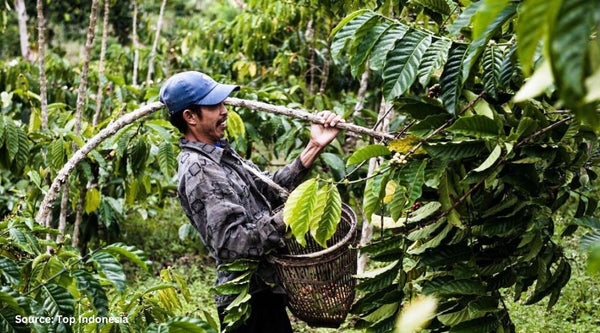
Sumatra specialty coffee is a type of coffee that is grown in the Indonesian island of Sumatra and is known for its bold and earthy flavor profile.
Sumatra specialty coffee is characterized by its full body, with a heavy mouthfeel and a low acidity. It has notes of dark chocolate, earth, and a hint of spice, and is often described as having an "earthy" or "woody" flavor.
The coffee is typically brewed using traditional methods, such as a French press or pour over, and is often served black to showcase its natural flavor.
Sumatra coffee is grown in a variety of regions across the island, each with its own unique flavor profile. Some of the most well-known coffee-growing regions in Sumatra include Aceh, Lintong, and Mandheling.
The coffee is grown using traditional methods, and is often shade-grown, which helps to conserve the island's natural resources and provides a habitat for a variety of wildlife.
To conclude, each specialty coffee region has its unique set of flavors that makes it stand out from the rest. These flavors are a result of the combination of factors such as the soil, climate, and altitude of the region.
The next time you sip on a cup of specialty coffee, try to identify the unique flavors that make it special and appreciate the hard work and dedication that goes into producing it.
